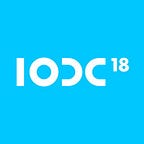Open Cities Summit Showcases Progress and Challenges for Open Governance
By: Alex Howard
On September 24, over a hundred participants considered what “open” means for a city today at the second Open Cities Summit in Buenos Aires, going beyond open data and “smart” initiatives to public access, expression, assembly, participation, and, ultimately, power and agency.
The majority of humanity lives, works, studies and plays in cities in 2018, with increasing urbanization around the world bringing every more people into growing metropolises. Cities and the manner of their governance play a unique role and significance for open government advocates and reformers, with both immense potential for improving the lives of billions of people and risks for human rights, freedoms and the consent of the governed. Opening data, code, and legislation matters more than ever, as does the design of beautiful, simple, and trustworthy digital services — but cities can’t just publish information online and expect positive outcomes to occur on their own.
“Open data is not enough,” said Panthea Lee, the co-founder of Reboot, who said that we need to explore how to use open data for conversation and to improve outcomes for the residents of cities.
A series of keynote speakers in the morning explored what “open cities” mean in 2018, often reinforcing similar themes and points, followed by workshops in the afternoon.
Prior to the keynotes, Fernando Straface, the secretary general for international relations of Buenos Aires opened the summit with a short speech, embedded below, that highlighted how transparency, accountability and digital governance relate.
Juan Vila, director of open government for the City of Buenos Aires, highlighted how much open data the city is publishing and progress towards publishing contracts. He also emphasized that while transparency is a good in of itself, if it is not translated into improvements, it won’t generate impact. Vila said that cities need to ensure that residents not only develop platforms, enabling neighbours to use data but to focus on reuses and developing health data ecosystems. Officials need to solve the problems that citizens have in daily life, he said, leaving their desks to discuss the challenges with other officials, engage neighbours, and place the public at the centre of the efforts.
Gustavo Ungaro, the controller general of Sao Paolo, outlined how one of the world’s biggest cities has institutionalized open governance into its operations. His agency performs auditing, based on risk analysis, error detection, to control and verify errors, public engagement, to listen to residents, promotion of transparency, to guarantee integrity and multiply good practices. Ungaro also put their work in the context of Brazil facing serious corruption problems, referencing the Lava Jato (carwash) scandal. Addressing corruption cannot just be done through criminal prosecutions, he said, but through strengthening institutions and improve democratic systems.
As he noted, Sao Paulo is the only city in Brazil that is actively participating in the Open Government Partnership, for which it is writing a second open government plan, including participatory meetings to refine the priorities.
When asked about whether the city was using its open data, or dogfooding Ungaro acknowledged that it was not but highlighted increased digitization of administrative processes in Sao Paulo, on an online platform that is open to the public. Where private information needs to be protected, public officials must classify it.
Francois Croteau, a borough mayor in Montreal, centered his talk on people, emphasizing that tech is not the goal, but the means to a achieve a solution a problem, noting that a previous administration overly focused on getting apps on smartphones. Instead of technology for solutions, he advocated for using it to improve the process by which the city collaborated with its residents on co-create improvements. As an example, Croteau referenced a successful “green alley” experiment that has improved the quality of public spaces through empowering residents to get directly involved, which the city is now exploring for geothermal energy.
In the end, the most important thing is how we can improve the city, services and public trust, he said, emphasizing that if politicians want to improve democracy, we have to bring citizens with us.
